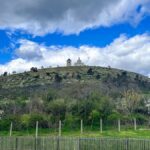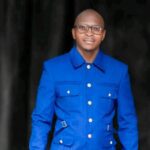
Europe November 2024 Field Report
November 27, 2024
From Sharing Maize to Shaping Generous Citizens: Water of Life International Church, STUM, and GTP
December 7, 2024Inviting collaboration to spread the gospel in Central Asia
ABOUT THIS EPISODE
In the thirty-ninth episode of the Inspiring Stewards podcast, Nathan Jones speaks with Dr. Talant Aktanzhanov from Almaty, Kazakhstan. Hear the remarkable story of how, as a child, Talant contributed to the Christian faith of his parents while growing up in a Muslim-majority country. He shares insights about Christianity in Kazakhstan and how God has engaged him to serve ministries in Central Asia. Drawing inspiration from the Apostle Paul, he urges stewards to contribute through their service and financial support regardless of their level of resources. He concludes with an invitation to collaborate with him right now to spread the gospel in the region.
We’d love to hear your thoughts, comments, or feedback. To do so, email us at mail@gtp.org.
The music is Concerto a’ 4 Violini No 2 by Telemann played on classical guitar by Jon Sayles. Published by Exzel Music.
Length: 12:13
TRANSCRIPT
NATHAN JONES
This month, we head to Kazakhstan to meet with Dr. Talant Aktanzhanov who serves as Scholar of World Religions and Faculty at Grace School of Theology.
My name is Nathan Jones, and I want to thank you for joining me on this episode of the Inspiring Stewards podcast.
Well, Talant, thank you for your time today. Looking forward to this conversation. So, let's jump in. Give us a bit of your background and where you're from growing up and where you are now.
TALANT AKTANZHANOV
My name is Talant. I am from Kazakhstan, from the city of Almaty, and right now, I am in Almaty. I am a Christian.
NATHAN
Very good. Tell us about that. How did you come to know the Lord and what impact did He have on your life?
TALANT
So, I came to know the Lord as a child when I was eight years old through worship songs. So, our neighbors were singing some worship songs, I mismemorized those songs and came home, and I was singing one of the worship songs wrong way. Because in Kazakh language, which is my first language, the word for worship is “madaktangdar” and it is considered to be, you know, a complex word that a little child wouldn't know. But the child would know another word, which is “mazaktangdar,” which means like make fun of something or someone.
It's funny. I was singing at home, like “Let's, children, get together and make fun of God.” When my mom heard me singing that very weird song, she's like, “Hey, it can't be that way. It must be ‘worship or praise,’ not ‘make fun’ of God.”
And then, she asked asked where did I learn that song. And, then I told, “You know, neighbors, those kids.” And she went to talk to their parents, and they shared the gospel with my mom. And she accepted Christ the same day, immediately.
NATHAN
So, she was not saved before you?
TALANT
No, she wasn't. And I wasn't either, you know. I just mismemorized those lyrics and I was singing them wrong way. So, that's how it started. A few months later, my dad accepted Christ. And so, I grew up in a Christian family. When I mismemorized those lyrics, I was eight years old. Two years later, so I myself realized that I was a sinner.
I felt, you know, how heavy is being a sinner. So, when that hit me, so I approached my parents and said to them that I want to accept Christ as my Lord and Savior. So, since then, I'm a Christian.
NATHAN
Wow. Well, let's jump ahead. Tell us what you're involved in today.
TALANT
So, maybe it needs a little background. Kazakhstan is a predominantly Muslim country. Many Kazakhs believe that to be a Kazakh means to be a Muslim.
And every time when I try to share gospel message, so they would say to me that I'm wrong not because of my theological stance or what I believe. But they would say, like, “You are wrong just in principle. Being like a Christian is wrong. It doesn't matter what you teach, but it's just wrong. Because it's not for Kazakhs. It's for Russians. It's for Westerners. But for you, you have to be a Muslim."
And I see that as the biggest obstacle for the spread of the gospel. I'm trying to tackle that issue. Back in the days, I pursued my master's degree in Islamic studies. And eventually, I got my PhD in world religions but still focusing on Islamic studies, especially in our region, Central Asia.
Today, I'm helping pastors across the region how to respond to that challenge, how we explain to our Muslim friends, relatives, neighbors, everyone whom we meet, how we explain what it means to be Christian or what is the core of the Christian faith.
So, that's what I'm doing, like preaching at our church. And we also do some formal theological education through one of our online seminary platforms. And of course, non-formal theological leadership training because not everyone can afford seminary or formal education, not just because of finance, but also in terms of time, dedication.
So, we try to provide as much as they can digest. I say “we” because I'm not doing that alone. We have team here, like our pastor, myself, and a few other guys are doing that.
NATHAN
What percentage of the country now is Christian if there's any way to estimate?
TALANT
Yeah, that's a very good question. You know, how do you estimate how many Christians are there? So, when I say numbers, they shouldn't be taken as exact numbers, you know, like as an approximate. So, it is estimated that in Kazakhstan, we have about 0.5% of Christians out of like total population.
From those 0.5% Christians, probably half or less would be Kazakh-speaking Kazakhs, indigenous Kazakh Christians. I have to mention that the difference between Kazakhstan and probably in this whole region. In the US, it really doesn't matter, everyone is American. It can be Asian-American, African-American, Caucasian-American. All of you are Americans.
I've never seen any American saying, you know, like, “I'm American, but I'm German, because my ancestors were from Germany.” They say just, “We are Americans, that's it.” But in Kazakhstan, it's very different.
In Kazakhstan, for the first time, you know, like, it's not because you're a citizen of Kazakhstan. First, you have to state your ethnic identity, which group you belong to. And the two largest groups in Kazakhstan would be Kazakhs and Russians.
We have lots of Russians due to the Soviet past. And for Russian-speaking people or for ethnic Russians, it's a lot easier to accept Christ or to identify themselves as Christians. But for Kazakhs like me, it's a lot harder. Because you know, as I earlier explained, that we are expected to be Muslims.
And that linguistic difference is big. So, Kazakhs go to Kazakh-speaking churches. Russians go to Russian-speaking churches. And there are some, like, churches that mix.
So, in Kazakhstan, we have about 20 million people and out of that, they say 70% or 80% are Kazakhs. From that, maybe we have 25,000 Kazakh-speaking Kazakh Christians and maybe 20,000-25,000 Russian-speaking Christians.
NATHAN
Wow. So, you have your work cut out for you. With your background, we could spend a lot of time on this topic.
Let's shift for just a bit to the topic of stewardship. This is the Inspiring Stewards podcast. Tell us about how the biblical principle of stewardship is impacting your life today.
TALANT
You know, it's very interesting. So, as I said, harvest is plentiful but workers are few. But also resources are few too. So that requires some diligence and a lot of wisdom. How do you manage that very few resources, that very few people that you have on your team on your camp?
So, I think it's very important for us to prioritize our stewardship. Nobody pays me in Kazakhstan or any pastor doesn’t get paid for being a pastor. You know, because being Christian is not something welcomed here. So, therefore, we have to rely on external resources that come from the outside of the country.
And it’s just like in 2 Corinthians 8, Paul talks to Corinthians. You know like, Macedonian churches, they were themselves in poverty but they still demonstrating, exhibiting this great generosity. “And you, Corinthians, can do that, because, you know, you have enough. And by the way, you guys yourselves pledged a year ago to supply for the church in Jerusalem.”
That's exactly what's happening here in Kazakhstan. So, we have to be very careful when we get those resources and do it in a very responsible way.
NATHAN
Yeah. It's fascinating how stewardship manifests itself to look like in different parts of the world and seeing the way that countries of all different means are asking the question, “How can we properly manage what we have?”
So, you've touched a little bit on this, but let's take a step back. And as you're seeing God move in the world today, either locally or regionally or beyond, how would you describe the way that you're seeing God uniquely work today?
TALANT
So, it's very interesting. One way what God is doing is: for a long time, we were accustomed to the pattern of getting resources and having expat workers, like missionaries primarily from the West. So, that was the pattern for a long time. But now it's changing.
So, now we get people from different parts of the world who are interested to come and serve here. And it's so meaningful and powerful because in Kazakh society, in general in Central Asian society, when they say Kazakhs or Kyrgyz or Uzbek people have to be Muslims, they apply it also to Christianity. They say Christianity is for the Westerners.
But when you get missionaries, teachers of the Bible, preachers of the Bible, preachers of the Good News coming here and teaching from Asia, from Africa that disrupts their narrative, it can be used here in a very meaningful way. So, I think that's something that God is doing. So, I get more and more visitors actually from Asia than from the US today.
NATHAN
Well, Talant, as we're wrapping up our time, what final thought would you like to leave those listening with today?
TALANT
I want to say, even though I said, you know, we are getting more people, resources from Asia today, I think the church in your country still can do a lot for this part of the world. And maybe you could collaborate with your friends and colleagues from the other parts of the world, instead of just coming here yourself. Because harvest here is indeed plentiful, but we have very few workers.
NATHAN
If someone said, “I feel called to do something,” where could we point them?
TALANT
You can give them my email address.
NATHAN
Very good.
TALANT
And you know, it's not just the harvest is plentiful. We also sense a great freedom than we used to have five years ago and if someone wants to come here, it's the perfect time now.
NATHAN
Why is that? What has changed?
TALANT
We had some political turbulence. We have now more freedom than we used to have. And though it's not guaranteed that it will be here tomorrow, but today, we have it.
NATHAN
Well, Talant, thank you so much for your time and for sharing and opening our eyes to what God is doing and some ways that we could be supportive and come alongside. So, praise the Lord.
TALANT
Praise the Lord.




